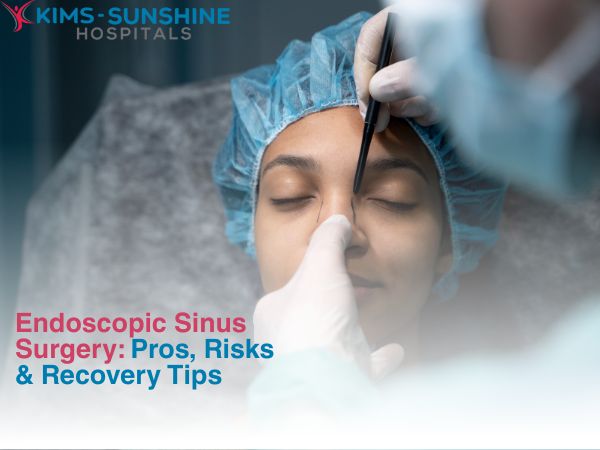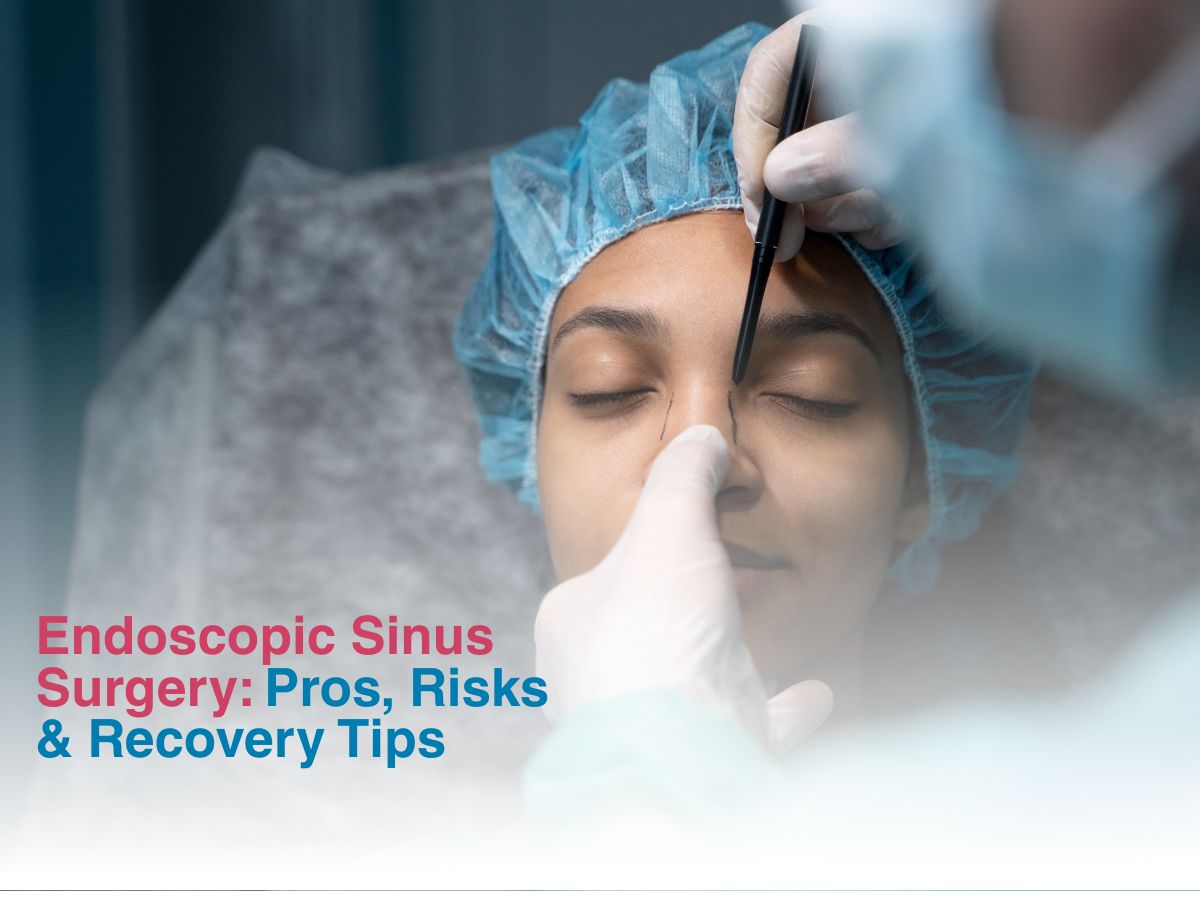
Endoscopic Sinus Surgery: Pros, Risks & Recovery Tips
The nasal passages are an extremely important and necessary way for air to enter the lungs and for carbon dioxide to exit freely. We all know how miserable life can be, if we get a cold. Now imagine how it would be for individuals who have chronic sinusitis – which is a condition where the nasal passages can be inflamed for long periods of time. Now, most of us wouldn’t even notice an issue with our nose or the passages, until there is a blockage, or mucus is not getting drained in the way it should be. Most people begin to look for treatments when they cannot breathe freely or feel like there is some hard lump in their nose that is preventing them from going about their daily routine. When this becomes unbearably hard to deal with, getting minimally invasive sinus surgery can provide major relief.
What Is Endoscopic Sinus Surgery And How It Works?
Endoscopic sinus surgery ((ESS) or Functional ESS (FESS) is a minimally invasive surgical procedure that is used by doctors to remove extremely inflamed or diseased tissue or bone from the nasal passages, or nasal polyps which may from over a long period of time. Chronic inflammation is a common issue for people who suffer from allergies, asthma or other related conditions and as the nasal passages get narrower than before, breathing in and out can become a painful exercise all by itself. All the instruments needed for surgery are inserted through the nostrils and there is no cut or incision that is made externally.
Benefits Of Sinus Surgery For Chronic Sinusitis
It is immensely helpful for people who suffer from chronic sinusitis, as inflamed tissue and bone can be removed. Nasal polyps are benign growths in the nose which can obstruct free breathing. It is also particularly advantageous for people who have tumours in the nose or have sinus infections that keep coming back, even after extensive antibiotic treatments.
Risks And Complications Of Endoscopic Sinus Surgery
For some people, a CSF leak can occur due to structures getting damaged during surgery. This is a very rare occurrence though. For other individuals, vision loss or double vision may also be present. Very watery eyes are a common issue after surgery, but it will get better as you recover. Some people may also lose their sense of smell completely.
How Long Does It Take To Recover From Sinus Surgery?
On an average, you should be able to resume normal activities in a couple weeks or so. Your doctor will ask you not to blow on your nose at all after surgery, for at least the first week. You will be asked to rinse your nasal passages out with saline water. You should sneeze with your mouth open and into a kerchief if possible, as you may have some bloody discharge for the next few weeks, until your nasal passages heal completely.
A follow up session is normally added, so that the doctor can check how well you are healing and to remove any dry blood or mucus that will be present in your nose. Getting FESS done can be of major help in most cases and people live comfortably afterwards.
Conclusion
Chronic sinusitis and sinus pressure, headaches and other related issues can wear you down and reduce your daily quality of life immensely. So, talk to your doctor if FESS would be a good idea to go with. You will need to prepare for surgery carefully- stop smoking at least a month before, stopping blood thinners and also discuss if you have any allergies to anaesthesia which will be used during the procedure. Then, on the day of the surgery, you will need to fast. The procedure itself will take about 2-3 hours, for the doctor to finish on both sides. You can breathe better and live life, normally. Won’t that feel like a blessing?







